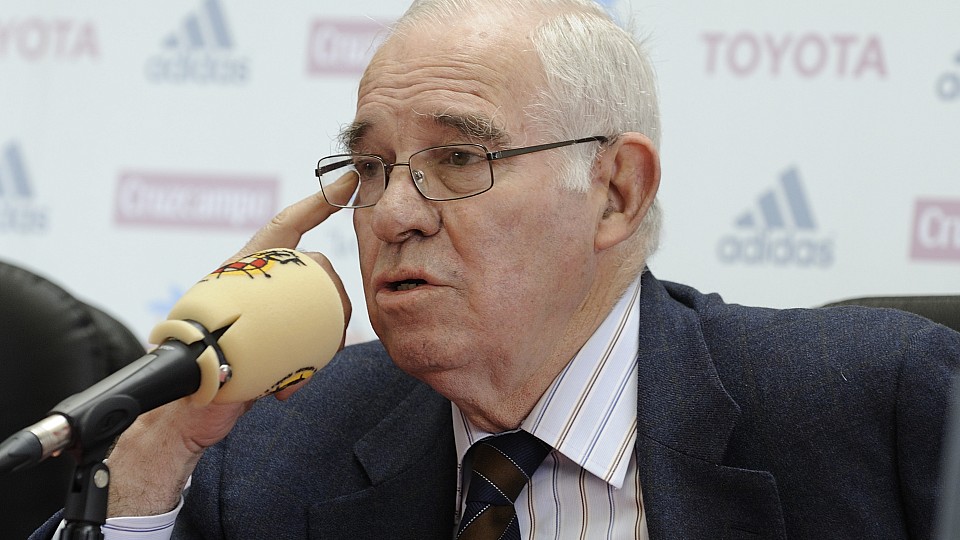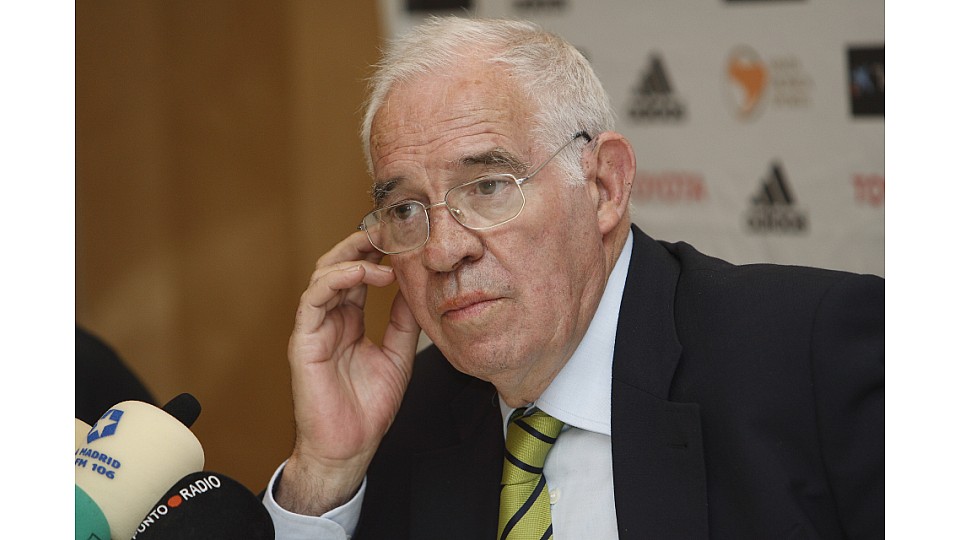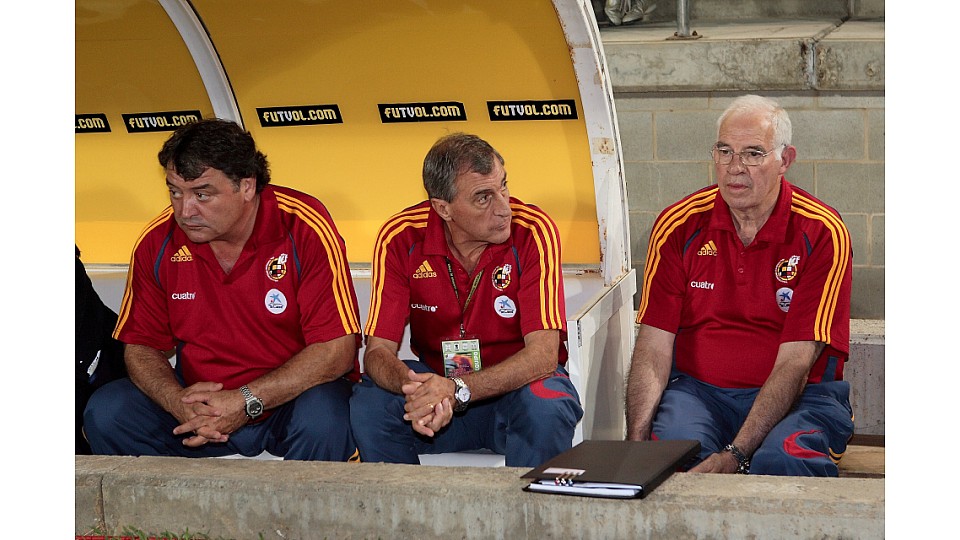
El Sabio de Hortaleza (the wise man from Hortaleza) did not get his nickname by chance. Luis Aragonés Suárez (1938-2014) put all his football knowledge at the disposal of the clubs that entrusted him to manage them, and his wisdom helped the Spanish National Team in no small way too. With the national team, he won the second title in its history and, above all, broke the prevalence of a defeatist mentality that had previously dogged the country for too long.
As a midfielder, with the number 8 on his back for "his" Atlético Madrid, he showed his outstanding talent that brought something different to the pitch. That player, who made his debut while being accidentally referred to as “Ruiz” due to confusion with his name “Luis”, went on to become a staple of the Atletico line up over time. During his time in red and white he would win three Primera División league titles, two cups and a European Cup runners-up medal in his 10 seasons at the club, undoubtedly a great list of honours. He also won the Pichichi top goalscorer’s trophy in the 69/70 season, which is no mean feat considering he was not a striker. He was also capped 11 times by his country, scoring three goals.
But the real Luis, now known as " Don Luis Aragonés", showed his greatest gifts on the bench while taking charge of his sides. A coach of great character, a forger of dressing room solidity, a motivator of youngsters, he took "his" Atlético to glory, along with other great experiences when managing Barcelona, Espanyol, Sevilla, Valencia and Betis, among others. Then came his defining moment as a manager, in 2004 he arrived as manager of the Spanish national team, and as they say, the rest is history.
He showed that Spain knew how to win
Luis Aragonés was not one for taking his foot off the accelerator in his later years, something he proved in those four years in which he laid the foundations for the most glorious era in our national team’s history. At the 2006 World Cup, a young and still inexperienced team lost in the Last 16 to Zidane's France, who would go on to reach the final. However, that same group, two years later, would be crowned European champions.
It was 2008, 44 years after the previous Euro success that had been enjoyed in black and white, that his greatest triumph would come. Spain rediscovered how to win, Spain had the quality to win. And Spain won. He turned what was known as “la Selección" (the National Team) into "La Roja" (the Reds). That change in mentality and self perception was one of his greatest successes. Don Luis left the dugout conscious of what he had achieved, sure that he had sown the seeds of future success that would lead us to the 2010
Spanish football will never forget the legacy that Luis Aragonés left us. That is why the assembly hall at the Ciudad del Fútbol in Las Rozas, the headquarters of the RFEF, bears his name. In that way, his never-ending presence lives on at all the major footballing ceremonial events held in our country. That is also why his number 8 adorns the façade of the sportshall at the Ciudad del Fútbol. And that is also why, among other reasons, the RFEF has produced a documentary, available on Amazon Prime Video, entitled "El sabio del éxito" (The wise man of success). Because, the figure of Luis Aragonés remains immortal. Ten years after his death, the legend remains.

